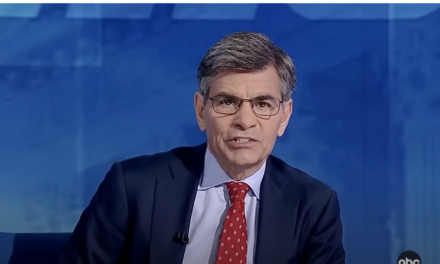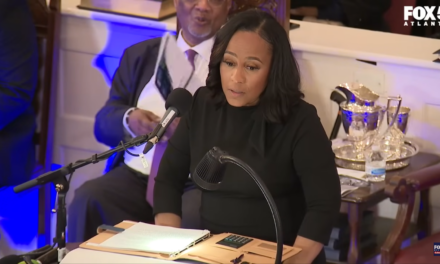We support our Publishers and Content Creators. You can view this story on their website by CLICKING HERE.
When American citizen and Army veteran Shamsud-Din Jabbar attacked his own country on New Year’s Day, the tragedy served as a reminder that globalist politicians are flooding the country with ideologies hostile to the country’s very existence.
Jabbar murdered 15 people by driving a rental truck through a crowd in New Orleans the same day someone else detonated a bomb in front of the Trump Hotel in Las Vegas. Following this violence, ISIS called for lone wolf attacks across the West.
Jabbar was born and raised in Texas, and his resume sported more than a decade in the U.S. Army. But he was turned against his country by radical Islam, and he allegedly expressed allegiance to ISIS by flying the terrorist group’s flag from the back of his truck as he murdered fellow citizens.
The New York Post accessed Jabbar’s home, which the federal investigators apparently left vacant. Reporters found evidence like a Quran opened to pages about martyrdom and an alleged bomb-making station.
Radical Islamists have repeatedly attacked Americans since the devastating attacks of Sept. 11, 2001. In 2009, an Army major radicalized by Islam killed 13 and injured 32 at Fort Hood, Texas. In 2013, two radical Muslim brothers detonated bombs at the Boston Marathon, killing three and wounding 260. In 2016, ISIS recruited terrorists to attack an art exhibit in the Dallas suburb of Garland — but local police thwarted the attempt.
Customs and Border Protection have encountered 76 individuals on the terror watchlist at ports of entry and three in between ports of entry so far in fiscal year 2025. In fiscal year 2024, the agency encountered 410 potential terrorists at ports of entry and 106 in between ports of entry.
Despite the clear and present danger of radical Islam, which turned Jabbar — an Army veteran and lifelong citizen — to violence against his country, globalist politicians have been welcoming this ideology for years under a watered-down idea of citizenship.
Former President Barack Obama refused to even use the term “radical Islam.” When former President Donald Trump placed travel restrictions on Islamic extremist countries likely to export terrorists and their ideology, former Democrat Sen. Dianne Feinstein and other legislators tried to end the so-called “Muslim Travel Ban” — and President Joe Biden later revoked the bans as “discriminatory.”
Subverting Citizenship
Citizenship, either “by birth or choice,” means a “country has a right to concentrate your affections” and “exalt the just pride of patriotism,” said George Washington in his Farewell Address. And Abraham Lincoln, in his first Inaugural Address, said citizens are united under “bonds of affection” and “the mystic chords of memory, stretching from every battlefield and patriot grave to every living heart and hearthstone all over this broad land …”
Vice President-elect J.D. Vance summarized the traditional view of America as being both an idea and a people: “America is not just an idea. It is a group of people with a shared history and a common future. It is, in short, a nation.”
But globalists have watered down this deep meaning and its consequent civic duty. Obama defined citizenship as “ordinary men and women, determined to forge their own future” who “work together across borders.” This echoes the United Nations’ twisted idea of “global citizenship” — that “individuals are members of multiple, diverse, local and non-local networks rather than single actors affecting isolated societies.” It renders citizenship nothing more than an empty platitude.
Apparently operating on this idea, Biden has been taking steps to expand citizenship, ushering illegals across America’s borders who often commit heinous crimes. Corporations have also been flooding towns like Springfield, Ohio and Charleroi, Pennsylvania, with noncitizens for cheap labor — displacing and overwhelming citizens who are part of the American cultural fabric.
This approach treats America as nothing more than an “office park,” letting individuals come and go on a simple economic basis without any loyalty to the nation, its culture, or its principles.
Sean Davis, CEO of The Federalist, explained citizenship is not simply an economic proposition. “Either citizenship means something, or it doesn’t. Either it obligates, or it doesn’t. And if it doesn’t, then we need to have a much broader discussion about the effects of not just illegal immigration, but legal immigration as well,” he said.
When citizenship is weak, so are the people’s natural bonds of affection for their nation and neighbors. As seen in the attack on New Orleans, it enables radical ideologies to even corrupt veterans and lifelong citizens.
Logan Washburn is a staff writer covering election integrity. He is a spring 2025 fellow of The College Fix. He graduated from Hillsdale College, served as Christopher Rufo’s editorial assistant, and has bylines in The Wall Street Journal, The Tennessean, and The Daily Caller. Logan is from Central Oregon but now lives in rural Michigan.

 Conservative
Conservative  Search
Search Trending
Trending Current News
Current News 





